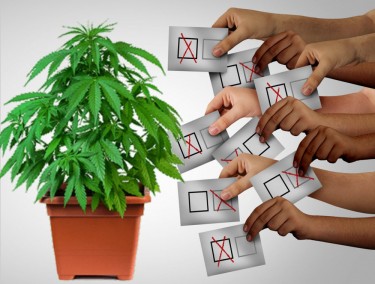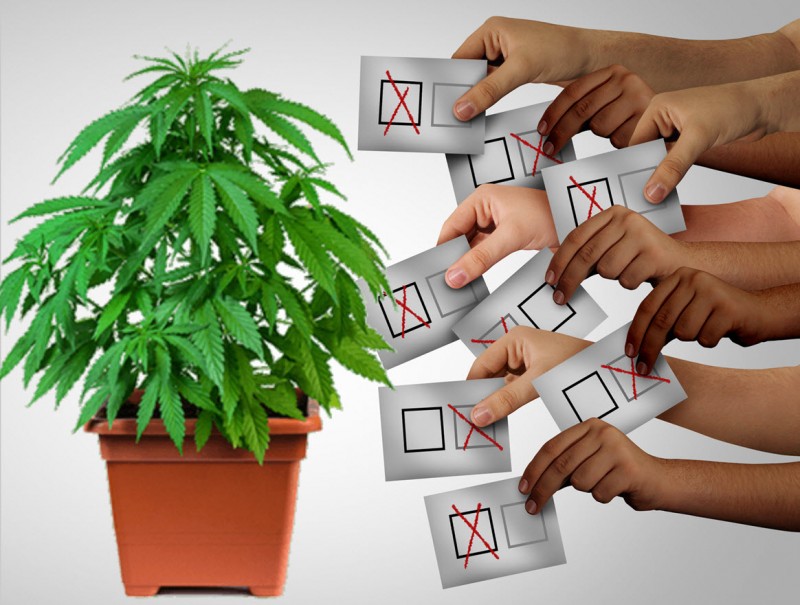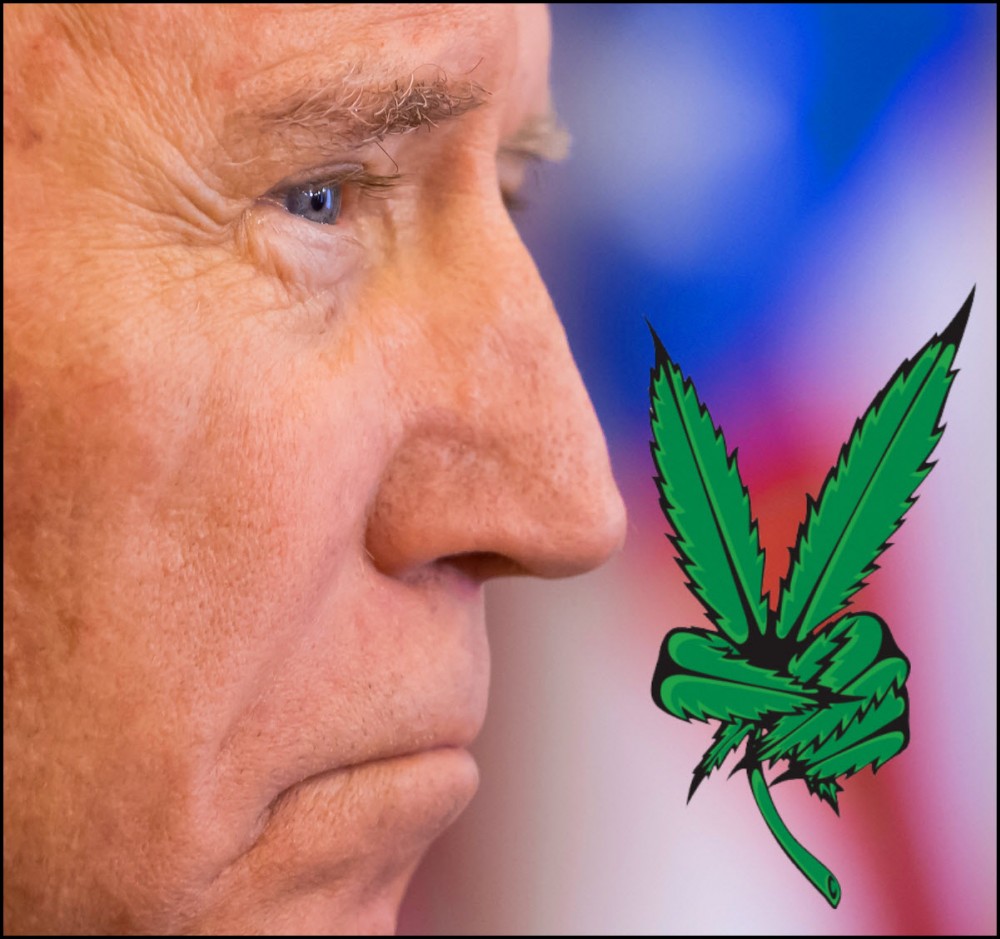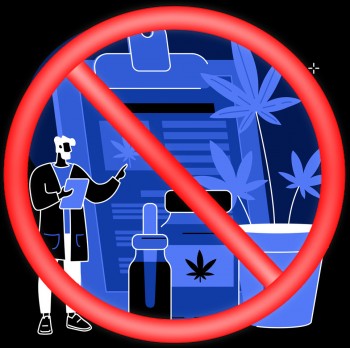What is the New Plan to Get Marijuana Legalized in 2021?

The Democrat-led Senate is actively trying to make sure cannabis is decriminalized now that they are in charge. These top political individuals are coming up with proposals that will ensure cannabis is finally delisted from being a prohibited drug.
Bills are also being designed to legalize marijuana At a federal level.
Not all senate leaders and advocates are indeed on board with this vision. Even the President, Joe Biden, looks to be against the topic. Fortunately, the senators are looking past this to focus more on getting enough votes in the chamber to prevent the bill from stalling.
"The war on drugs has been a war on people—especially people of color"
The proposed bill is being backed by Senate majority leader Chuck Schumer, Senator Cory Booker (New Jersey), and Senator Ron Wyden (Oregon). The above sentence was included in a statement issued by these three men to highlight how partial the current laws are.
Weed possession is the major charge against most of the colored population in US prisons. It is one of the reasons the prisons are congested. Funny enough, there are white people who have committed this same offense, but weren't jailed.
Sen Schumer is very serious with this bill and is committed to ensuring the federal organization of cannabis occurs sooner rather than later. He also seeks to address the ongoing harms that happen due to the prohibition of the drug.
The director of Governmental relations for the Marijuana Policy Project, Chris Lindsey in an interview said that the body he belongs to does not doubt that Sen Schumer Is considering any and every option that can help him accomplish his reform proposal.
Expected obstacles
Gathering 60 votes may be a challenge to the advocates of this bill. Without these votes, the bill will be delayed on the floor, seeing that it is a standalone bill. Some advocates are trying to see if the budget reconciliation system can be adopted for this proposal.
This way the policy will be changed smoothly with a majority vote of just 51 senators.
Sen Schumer in a press conference explained that only the legislature can decide whether or not the proposed reforms will be incorporated into reconciliation measures.
Another loud voice in this procedure is that of Maritza Perez, the director of the office of national affairs for the drug policy alliance. Mr. Perez said in an interview that the only way a marijuana justice bill can be approved in the senate is through a must-pass bill.
Reconciliation, though easy to execute, will only complicate the process down the line.
Budget Reconciliation Process
The American legislative process is not straightforward, but this path may be the last resort for cannabis advocates to work around the legalization of cannabis. As it would secure the votes of republican supporters in the chamber.
This is where the Byrd rule comes in. This rule is used to define the usefulness of a proposition to the budget process. It determines how relevant a proposed bill to be incorporated is to the budget process. Not forgetting that the budget reconciliation process has a limit for the measures that can be incorporated into it.
Not excluding the fact that lawmakers opposing the bill would also be establishing a point of order any time soon.
It might take a few weeks to determine if the cannabis reforms meet the criteria used to make the decision.
The final decision will be left to the Senate Parliament to make, with consultations with the presiding officer of the chamber.
If these parliamentarians believe that the cannabis bill's language is irrelevant and in violation of the Byrd Rule, the bill will be thrown out of the reconciliation process.
Turns out being in charge of both chambers is not going to be an easy way into legalizing cannabis for Democrats.
This legalization bill has a lot of challenges to overcome. If it is incorporated into the reconciliation bill, any member of the senate chamber can make modifications to the bill. All these modifications will be debated and mulled over on the floor in the vote-a-Rama process.
This could take months to complete. It is also easier said than done; bearing in mind that some democrats are also opposing the proposed federal cannabis reforms.
Senators opposing the bill
Some of the senators that do not support the cannabis reforms are Senator Jeanne Shaheed, Sens Jon Tester, Bob Caset, Joe Manchin, and Mark Kelly.
Sen Shaheen recently spoke about her reason for not supporting the reforms in an interview with Politico.
In her words, "we're in the middle of an opioid epidemic, and the research that I've seen suggests that the reforms are a way for more people to get into drugs".
Sen Tester also went on to say he thinks organizations would cause more complications than they would solve.
As far back as March, Business Insider contacted Sens Debbie Stabenow and Ben Cardin for their comments on the proposed cannabis reforms. Both said they had not looked deeply into the issue, so refused to give any comment on the direction their votes would take.
Bottom Line
Sen Schumer has his work lined up for him. He has to make sure he puts all Democrats lawmakers onboard this bill because if any pulls out, he would have to get a Republican Senator to replace and get his required votes.
Every step has to be taken to prevent this bill from being incorporated into the budget reconciliation process—Which would be too messy. Nevertheless, it would be difficult to get 60 votes to get above the filibuster threshold.
If perchance the senator gathers up to 50 votes, it would be left to the Vice President, Kamala Harris, to make the tie-breaking vote. With the VP's pro-cannabis reform stance in the past, this might not be so bad after all.
However, if all else fails, then the budget process might be the viable method to approve this bill.
As the year progresses, other proceedings will continue to unravel, hopefully by 04/20 next year, pot would be a legal drug for every American to purchase in specified amounts.







